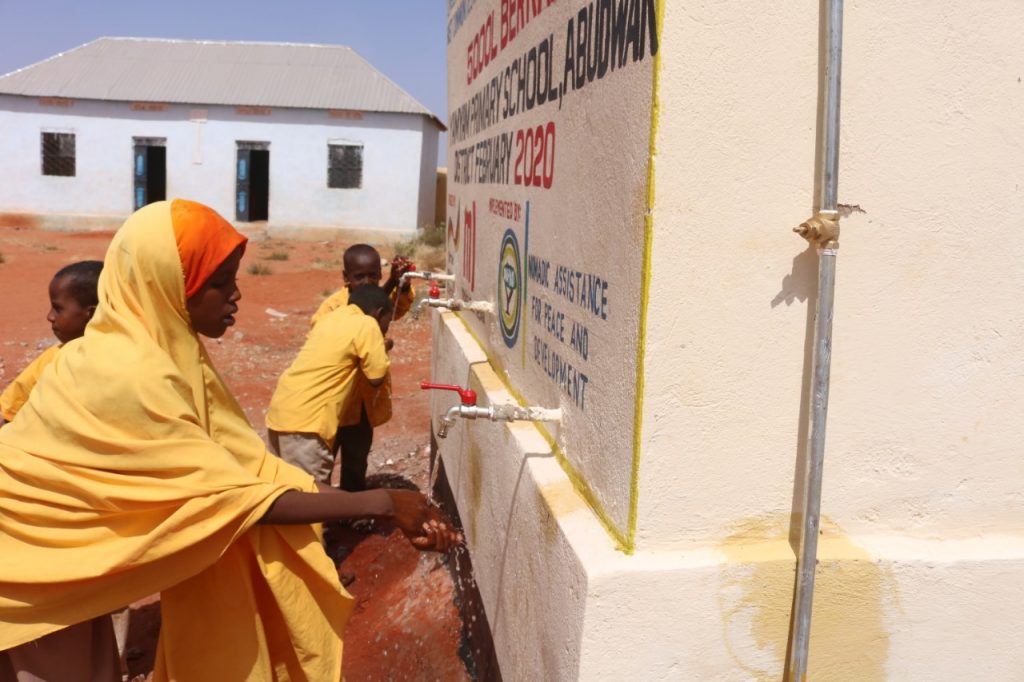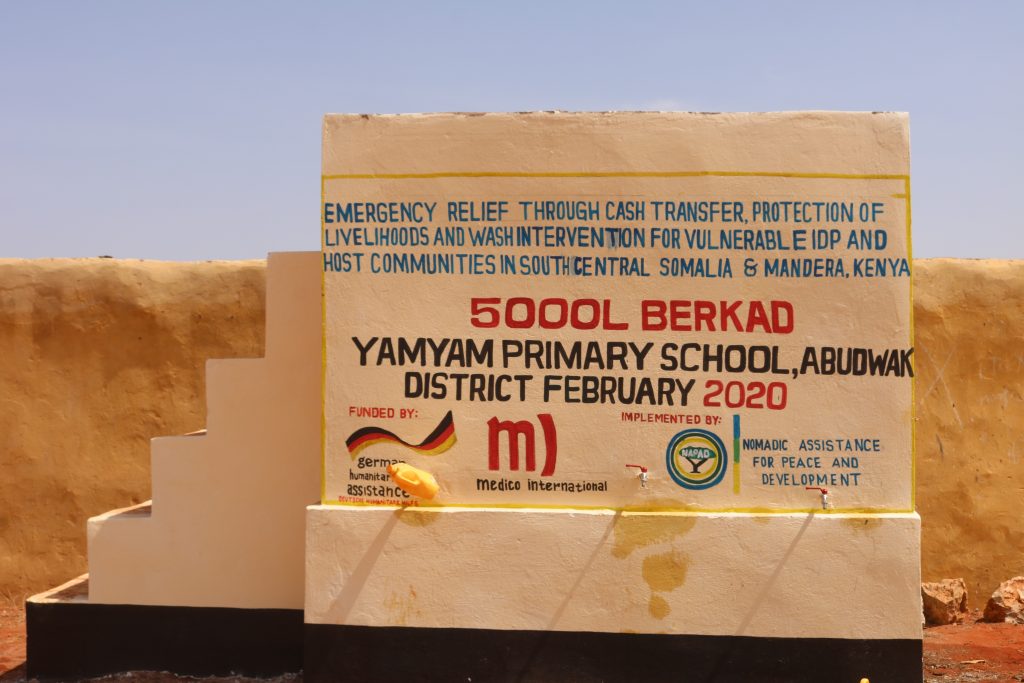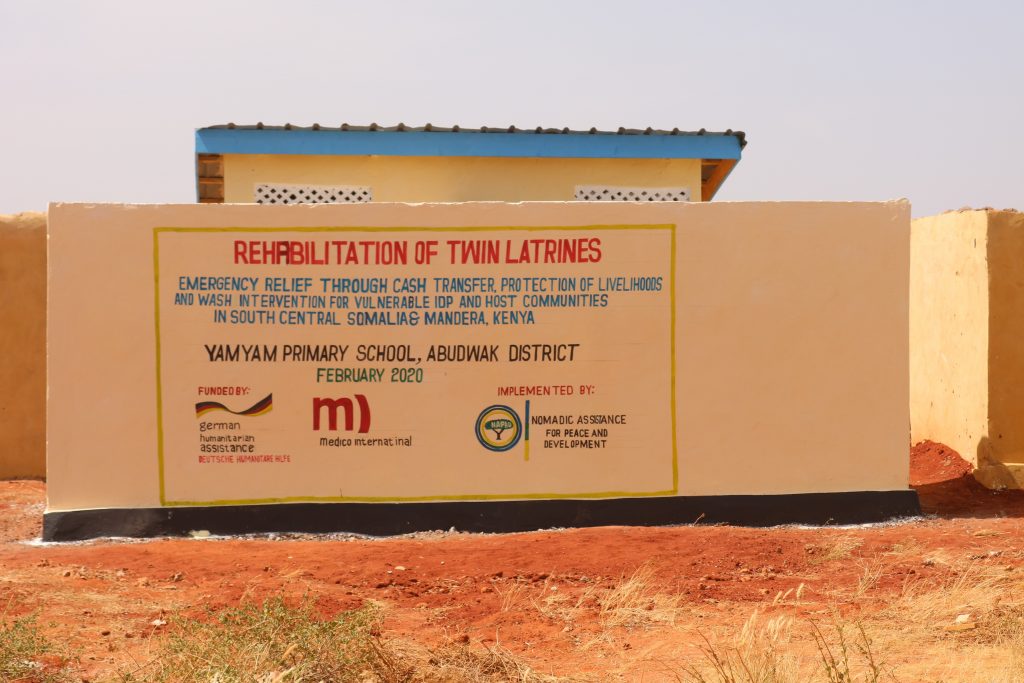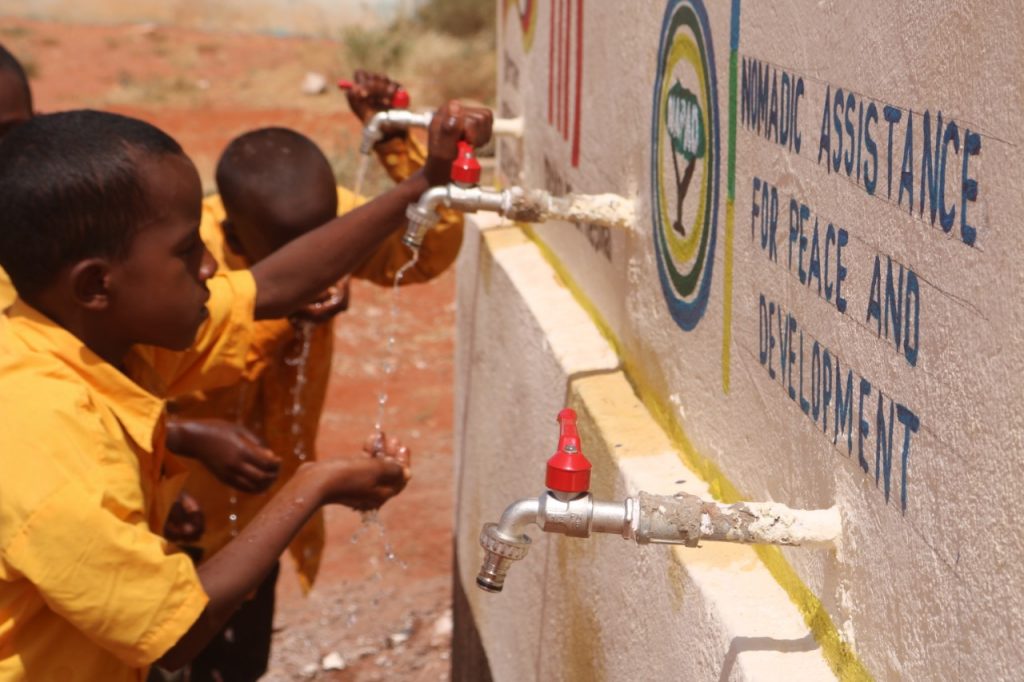
Thorn trees stretch in a stubborn thicket for hundreds of miles in every direction of Abduwak District, Somalia. The region is characterized by hot and dry weather most of the year except for some unreliable torrential rains which fall in April and October. Amidst the hot blowing wind and the fog of red sand, Yamyam Primary School is a beacon of optimism in the desolate arid area. Yamyam primary school is a community school located in an IDP camp in Abudwak district, with a population of 130 students and 4 teachers. The school, however, faces a myriad of challenges.
“Access to safe and clean water has been one of the biggest challenges for this school. Intermittent supply of piped water from the village borehole led to poor hygiene practices among the school population which exposed the students to water-borne diseases. This meant there was increased school absenteeism due to these diseases, while other pupils come to school late because they had to look for water before coming to school. If teachers became sick, classes were canceled for all students” Recalls school Principal Siciido Mohamed Abdi
Nomadic Assistance for Peace and Development (NAPAD) in collaboration with Medico International (MI) and German Humanitarian Assistance (GFFO) supported the school in the construction of a 5000L berkad (water reservoir) and the rehabilitation of twin gender-segregated pit Latrines.

“We used to buy water from nearby places to provide for the students which was difficult and expensive for the school. Things have changed because we now have a berkad full of water. The water is clean and safe for human consumption. We fill the berkad with water from the tap and it provides enough water for the school community, which has brought more convenience to the school routine, “admits Siciido.
NAPAD staff worked together with the school staff to ensure that the necessary conditions were created so that girls and female teachers would be able to go to school without interruption. This included the rehabilitation of gender-separated latrines and washing facilities in the school. The latrines have lockable doors from inside to provide privacy and security for the students. Also, a crucial aspect of the project was ensuring the sanitation facilities are inclusive to facilitate accessibility by people living with disabilities to guarantee that this group of people will be able to use the facilities as independently and safely as possible.

“Many of the female students have dropped out of school over the years due to shame and distress especially when there is no clean water at school to wash and dry themselves or to go to the toilet at all without disturbance. I believe that this is a new dawn for the education of our girls as they can now come to school and learn comfortably,” Says Siciido.
“I believe that this is a new dawn for the education of our girls as they can now come to school and learn comfortably”
Siccido Mohammed
Hand washing is now habitual and has enhanced hygiene practices among the pupils reducing diseases and increasing class attendance rates. Water gushing out of the taps has given the children nothing but dashing smiles and bright healthy futures.

